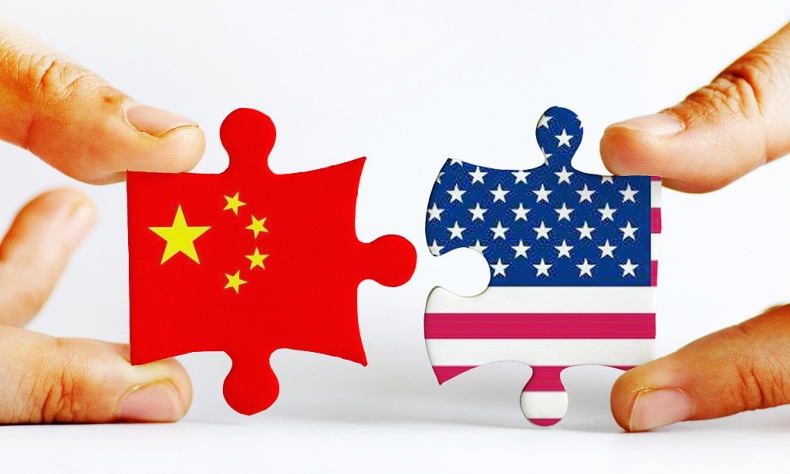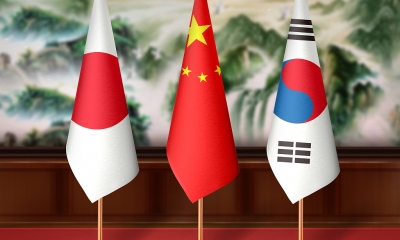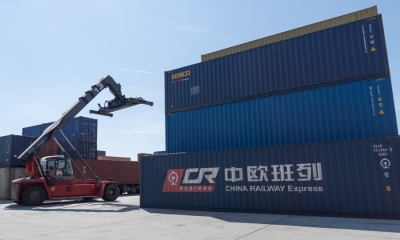Washington Lacks Common Sense in Making Its China Policy

Anti-China framing for such initiatives is not only politically unnecessary; it is harmful, as it inevitably feeds racism, violence, xenophobia, and white nationalism.
Finally, some common-sense thinking comes from the United States regarding China.
On Monday, the respected Quincy Institute announced more than 65 organizations had joined it in criticizing the Strategic Competition Act (SCA), which is expected to be voted on by the full United States Senate later this week.
Unfortunately, the Institute’s statement is not likely to change opinions in Washington, where anti-China sentiment is everywhere.
The SCA, which has strong support from Democrats and Republicans, is a near 300-page assault on reason. The Senate Foreign Relations Committee voted 21 to 1 a couple of weeks ago to support this questionable piece of legislation and to forward it to the entire Senate for debate and vote. At the time, one prominent Democrat senator claimed it would “finally meet the China challenge across every dimension of power, political, diplomatic, economic, innovation, military and even cultural.”
The Quincy Institute noted the SCA is just one example of the demonization of China taking place right now in the United States. It also affirmed that the current trajectory of U.S. political thinking is setting the stage for a new Cold War. And a Cold War would not benefit the U.S., China, or any other nation.
In part, the Quincy Institute’s statement reads:
We … are deeply concerned about the growing Cold War mentality driving the U.S. approach to China. … We know that the new Cold War with China currently being pushed in Washington does not serve the millions of people demanding change across this country nor the billions of people affected by U.S. foreign policy abroad, and will instead lead to further insecurity and division.
Worryingly, both political parties are increasingly latching onto a dangerously short-sighted worldview that presents China as the pivotal existential threat to U.S. prosperity and security and counsels zero-sum competition as the primary response. This narrative is not only growing in our foreign policy discourse but also is increasingly being used to justify widely popular domestic policies, like those in the Endless Frontier Act, that provide broad social and industrial investments. Anti-China framing for such initiatives is not only politically unnecessary; it is harmful, as it inevitably feeds racism, violence, xenophobia, and white nationalism.
Democracy for America, the Union of Concerned Scientists, and the Committee for a Sane U.S.-China Policy are just a few of the organizations that endorsed the statement, which acknowledges the world’s legitimate problems demand cooperation between the U.S. and China in order to ensure long-lasting solutions.
The Quincy Institute called upon Washington’s politicians to endorse a multilateral approach to solve crises such as the chronically unequal global economy that sees the rich get richer. The Institute also challenged the U.S. to rethink its bloated spending on military hardware. Finally, it urged dangerous political rhetoric that marginalizes people of Asian descent to be toned down.
The Institute’s statement follows a series of reports from its Responsible Statecraft magazine, in which various experts outline how the SCA and misguided political thinking will harm the U.S. and its relationship with foreign powers, most especially China.
One report argues the SCA’s rhetoric “deliberately stokes fear, suspicion, and blame as means to intimidate Americans who want to have constructive engagements with China.”
A second report states the SCA would undermine “educational exchanges and research collaboration between the United States and other countries” because such exchanges could be considered “potential national security threats.”
Another report issues an important warning about Taiwan region: The SCA stipulates “the United States Government shall not place any restrictions on the ability of officials of the Department of State and other United States Government departments and agencies to interact directly and routinely with counterparts in the Taiwan government.”
Furthermore, the report asserts, allowing any government entity to engage with Taiwan would “exacerbate fears in Beijing” that the U.S. is seeking to restart diplomatic relations with Taiwan. Crossing that red line would have dangerous implications for the region and the world.
Without question, the earlier suggestion that the SCA is an assault on reason is valid.
In one section, the legislation states Beijing “views its Leninist model of governance, ‘socialism with Chinese characteristics,’ as superior to, and at odds with, the constitutional models of the United States and other democracies.” It adds that China intends to “establish hegemony in Asia” and use it as a launching pad to become “the leading world power.”
With exaggerating the ideological difference between the U.S. and China, the SCA describes Beijing as the most potent challenger and threat to US leadership in world affairs, ignoring the peace and development diplomacy that Beijing has been adhering to and the fact that China remains self-restraint in face of mounting tensions in territorial disputes.
Sadly, President Biden already has added his voice of support to the SCA, ensuring he will sign it into law.
 Facebook
Facebook
 Twitter
Twitter
 Linkedin
Linkedin
 Google +
Google +







